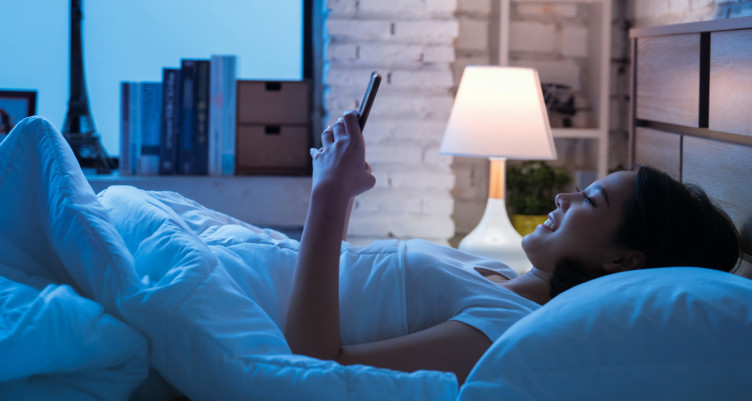
Today’s time the artificial light we are now exposed to comes from LED lights and LED screens, which emit high levels of blue light. Retinal cells of the eye are sensitive to this blue light and directly convey information to areas of the brain that regulate appetite. The findings of the study were presented at the 27th Annual Meeting of the Society for the Study of Ingestive Behavior. The authors found that after only one hour of nocturnal blue light exposure, glucose tolerance is altered.
The study clearly shows that being exposed to light, especially blue light, at night is disruptive and that screen use at night may increase our tendency to snack on sugary foods and disrupt our ability to process that sugar, leading to obesity.
In case it is necessary to be exposed to devices at night, It is recommended to use of apps and night mode features on the devices, which turn the screens more orange and less blue or the use of blue light filtering googles that are already available in the market.
The Reason, Why?
We have special sensory cells that react to the cool white light and control the body’s day-night rhythm. While the natural light becomes weaker and more yellowish in the evening hours, the light from the smartphone delays melatonin production. This means it’s more difficult to fall asleep and sleep deeply ending up looking for something to eat and help us sleep.
Limiting the amount of time that we spend in front of screens at night is, for now, the best measure to protect ourselves from the harmful effects of blue light.